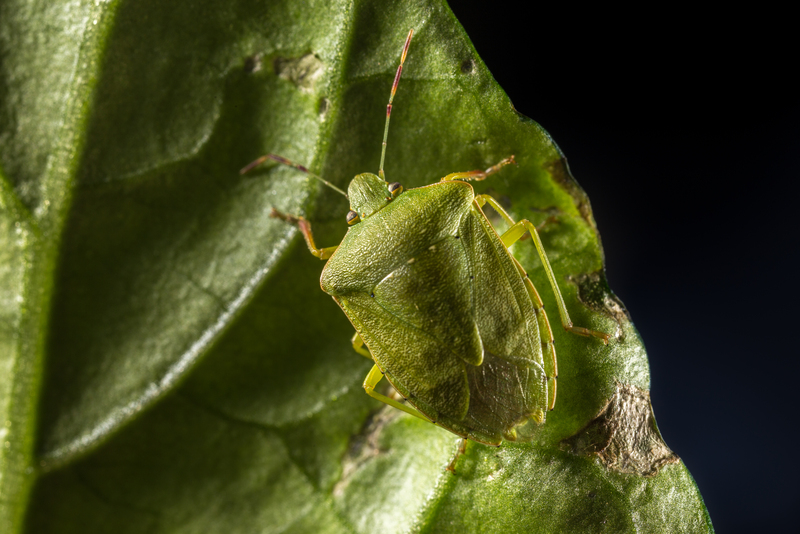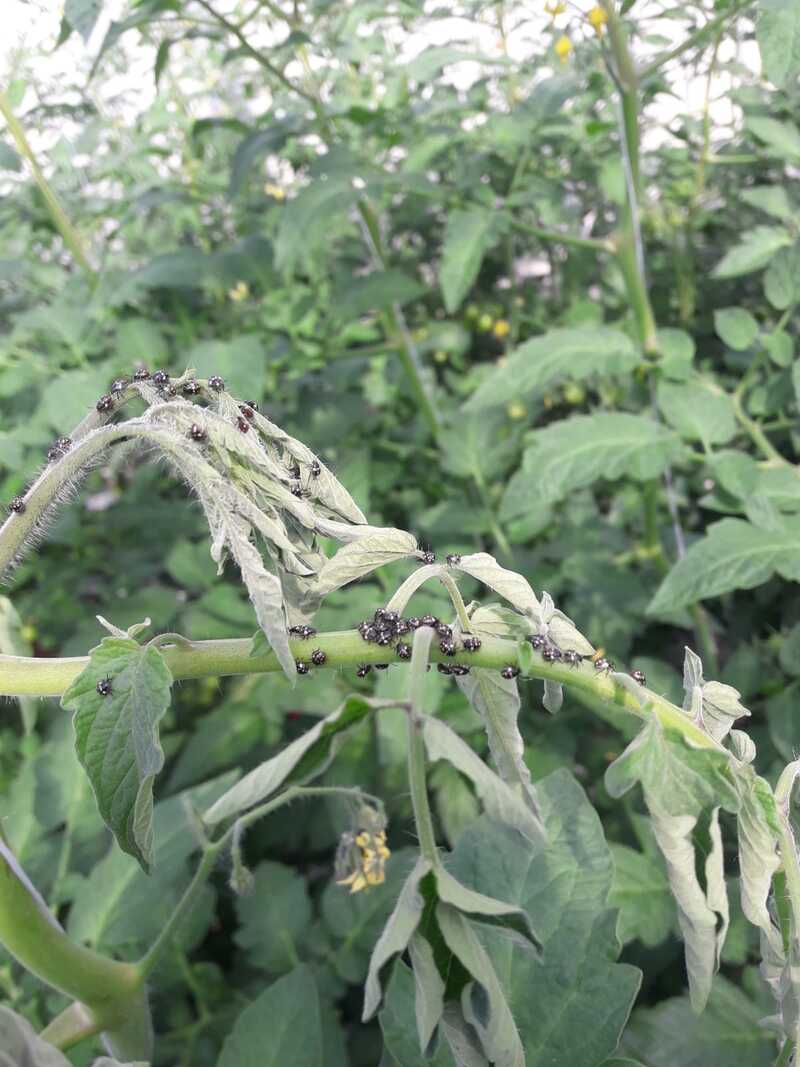
Biological solution against green shield bug in development.
Koppert Biological Systems is developing a biological method to combat the southern green shield bug (Nezara viridula). Koppert is working hard to make this product available in 2022 for their commercial partners.
Over the course of the previous decade, the southern green shield bug has ravaged unheated pepper, aubergine and cucumber greenhouses in southern Europe. This pest is also gaining ground in heated, high-tech greenhouses in north-western Europe and central Europe. The disappearance of chemical products, in combination with climate change, has resulted in an increase in the level of infestations in greenhouses. Controlling the green shield bug is a significant challenge, which, until now, has only been possible with the use of conventional synthetic chemical pesticides. However, these have adverse effects on the populations of beneficials that work against other pests such as thrips, spider mites, aphids and whiteflies. It is possible to remove green shield bugs manually from crops, but this is only an option at low levels of infestation. That is why this technique has so far yielded only modest results.

Koppert identified the problem of southern green shield bugs at an early stage. Research in 2018 to find the most effective natural enemy of this pest identified a European parasitic wasp that parasitises the eggs. The first field tests have shown very promising results and demonstrated that southern green shield bugs can be controlled effectively in practice. Large-scale field tests in a number of countries are expected to confirm these results this year.
Bart Sels, General Manager for Koppert Belgium, says, ‘The damage southern green shield bugs cause is enormous, and regularly results in crops needing to be cleared away earlier than planned. Combating this pest is challenging and chemical products are often used for this purpose, out of necessity. We are therefore thrilled that we have a biological solution for our customers in our sights. Our international team is putting all its efforts into ensuring growers can be offered a suitable solution to control this serious pest.’